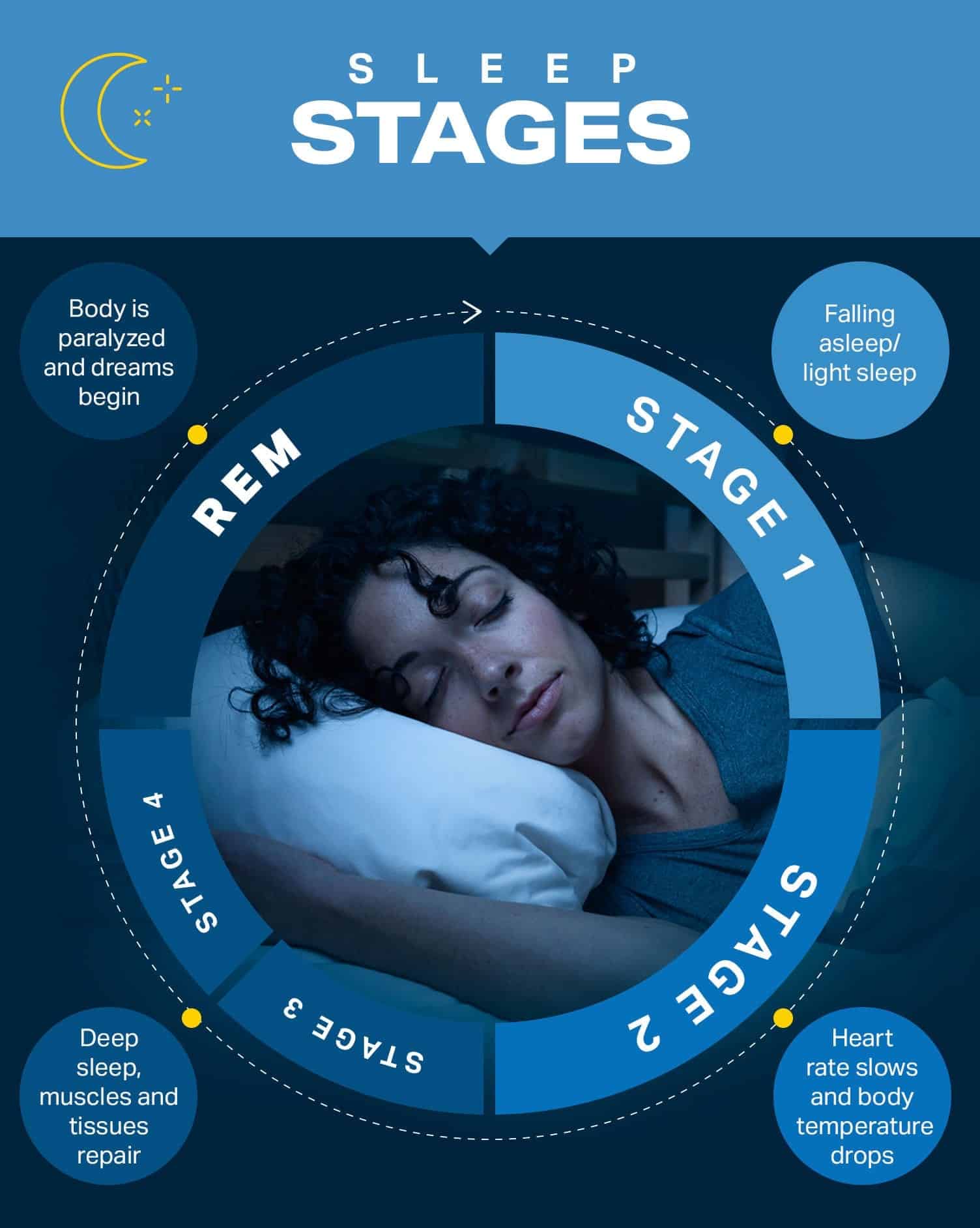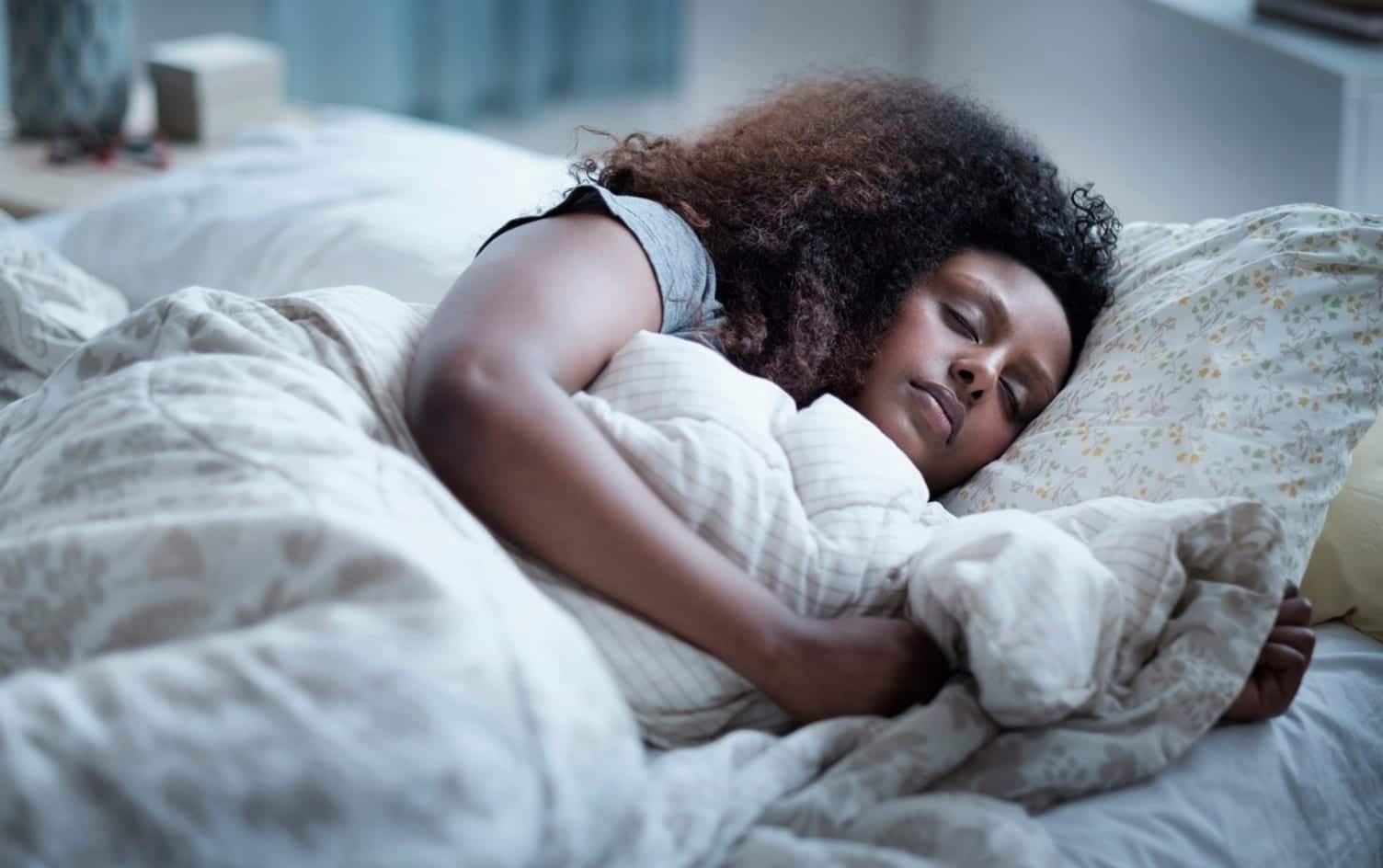We all know we need our beauty sleep, but we probably don’t realize exactly how big an impact sleep has not just on our health but also on our athletic performance. It’s tempting to set the alarm early or to stay up late, trying to cram workouts or work in, but don’t. “As a society, we’ve restricted our sleep,” says Dr. Jerald Simmons, a neurologist and sleep disorder specialist with Comprehensive Sleep Medicine Associates in Texas. Sleep loss has come at a cost.
Though sleep recommendations are highly individualized and can vary, you should “strive to achieve 7–9 hours of sleep nightly,” says Dr. Bruce Corser, medical director of the Sleep Management Institute in Ohio. If you consistently sleep fewer than six hours per night, there’s a long list of medical issues that can arise, says Corser, like diabetes, cardiovascular disease and cognitive impairment.
Here’s what you need to know about getting the right kind of sleep and what happens while your eyes are closed.
UNDERSTANDING SLEEP CYCLES
“It’s not quite clear why we need all the sleep cycles,” says Corser, “but they’re all thought to be important.” As we age we actually get less deep sleep, says Corser. At 20 years old, about 20% of our sleep is deep sleep, but for a 70-year-old it’s only 1–2%.

Stage 1 of sleep is the lightest period and is very brief; it’s essentially the period as we’re falling asleep when we’re between awake and sleeping. Stage 2 is where we spend most of the night. Heart rates slow and body temperatures drop. Stage 3 is deep sleep — typically about 1/3 of the night is spent in this deep sleep. Stage 4 is where deep sleep continues and when it’s the most difficult to rouse us. Stages 3 and 4 are when the body repairs muscle and tissues. The last stage is REM (rapid eye movement). We hit our first REM cycle after about 90 minutes of sleep and then about every 90 minutes during the night, and the cycles lengthen as the night goes on, so most of our REM sleep happens later.
WHY NON-REM SLEEP IS IMPORTANT
Different biological processes happen during each sleep cycle — and each is important. During slow wave (or deep) sleep, there is a clearing out of certain detrimental compounds in our brains. (In fact, there’s a correlation between the accumulation of some types of proteins and dementia.) Growth hormone is also secreted at its highest levels. And a lack of slow wave sleep has been linked to fibromyalgia and a lowering of the pain threshold.
Non-REM sleep is thought to be important for memory consolidation. This is when skills you’ve learned — for example, how to play the piano — move into long-term memory.
THE BENEFITS OF REM SLEEP
REM sleep helps us maintain emotional stability and is when our brain processes memories and experiences. It’s also when most dreams occur. If you don’t wake up during a dream, then you likely won’t remember it, says Corser, and if you’re not awake for more than 5 minutes during the night then you don’t remember it either.
When it comes to performance, sleep is necessary for us to recover and for our muscles to adapt to all the work they’ve done exercising. One study found the best indicator of VO2 max was the average amount of sleep over the previous month — and a lack of sleep the night before acutely impacted performance in a time-to-exhaustion test.
An extended period of not sleeping can have even bigger health impacts. Chronic insomnia, in fact, has been linked to an increased risk of depression and anxiety disorders, more frequent trips to the emergency room and a higher risk of car accidents. People who suffer from chronic insomnia are also 10 times more likely to miss work.
“Sleep can be thought of as equal to a nutrient,” says Simmons.
Unfortunately, many of us don’t sleep enough and we don’t sleep well. Quality of sleep is just as important as quantity. Yet, up to 30% of adults have intermittent insomnia and sleep issues, says Corser, and 10% have chronic insomnia, which means it lasts for three months or longer. “It’s a public health issue,” he says.
TIPS FOR FALLING (AND STAYING) ASLEEP
The first step to sleeping well is improving your sleep habits. This is known as sleep hygiene.
- Eliminate illuminated screens up to an hour before bed, especially the blue spectrum of light (which comes from digital screens). Bright light and blue light decreases natural melatonin production.
- Avoid stimulants, like coffee, after noon. Caffeine has a half-life of five hours, which means it can last long into the evening. Cold medicines and nicotine can also be stimulants.
- While alcohol is not a stimulant, it can cause arousal during the night, making you wake up repeatedly.
- You can also take a hot bath before bed — as your body cools off, it causes you to become drowsy.
- Maintain a regular sleep schedule, waking up and going to bed at the same time. Your body produces melatonin naturally in conjunction with your regular schedule.
- Avoid taking naps during the day.
- Limit the amount of time you’re in bed without sleeping.
- Sleeping with a pet can also be disruptive, as can sleeping with a spouse who snores.
- Expose yourself to bright light when you first get up, as your body responds to the light and wakes you up.
- And be sure your bedroom is dark, quiet and cool — the ideal temperature is 65–69ºF.
There are also sleep aids that can be helpful, though “none of the over-the-counter aids are great,” says Corser.
Melatonin is the most popular natural sleep aid and can be helpful to initiate sleep or to reset your clock after it’s been disrupted. “There’s very little downside,” says Simmons, but most people find that on a chronic basis it’s effectiveness wears off.
Valerian root is “the poor man’s Valium,” says Corser, but it can cause liver toxicity. It’s also important to know many supplements don’t have as much scientific research behind them and are less regulated than FDA-approved medications.
Over-the-counter sleep aids, like Benadryl (which is really an antihistamine) and Unisom have a long half-life, so you can experience grogginess the next day. They also can lose effectiveness, says Corser, and have some anticholinergic activity, which can cause constipation, urinary retention and potentially impair memory over time.
If you’re having sleep problems, the first step is to have a sleep study done and to see a doctor who actually specializes in sleep issues, says Simmons. Since most complaints tend to be vague — trouble sleeping or drowsiness during the day — a sleep study can pinpoint the specific problem.
Many sleep problems are actually breathing problems, says Simmons. Sleep apnea, in which you stop breathing briefly while asleep, can actually cause frequent wake ups during the night — even if you aren’t fully awake and don’t remember it. Waking up a lot disrupts your sleep and ultimately makes you very tired. Even ADHD in kids can, in some cases, be traced to sleep apnea and breathing issues, says Simmons. If you’re mouth-breathing, drooling, snoring or grinding your teeth (in addition to having tiredness symptoms), then a sleep study might help pinpoint your problems.
Even sleep coaching can do wonders. One study found a group of athletes who had weekly sleep training for 12 weeks showed improvements in VO2 max, lactate threshold, ventilatory threshold and even body composition.
DO SLEEP TRACKERS HELP?
Most sleep trackers are really movement trackers, says Simmons — even the ones that use heart rate are still, in essence, tracking activity, not tracking the full range of physiological markers a real sleep study tracks.
That can still be useful to pinpoint any changes in movement or activity or to bring in to a doctor if you’re having sleep issues as a kind of additional metric. But if you’re focusing on it too much or stressing about the numbers, “it can actually be counterproductive,” says Corser.
The most important thing isn’t tracking your sleep, it’s getting enough sleep.




